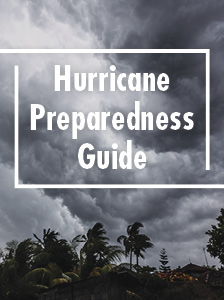How much life insurance do you need? The answer is different for everyone. It depends on your life, your investments and your monetary obligations.
Some might say it’s complicated, but such is the nature of a resource that is designed specifically to provide posthumous financial aid to an individual’s surviving loved ones, accounting for oftentimes decades of potential expenses along the way.
The future is impossible to predict, but life insurance asks that you do your very best to anticipate your loved ones’ every need. Think of the people in your life that you want to protect, then consider the income and expenses they would need to take care of if you were gone.
Here are a few important things to consider when thinking about your life insurance coverage needs.
Immediate Needs
Even those who put a lot of effort into planning their future can overlook the immediate financial needs that will follow their death. Expenses may include:
- Funeral costs and burial.
- Outstanding medical bills, especially if extra medical care is needed in the end.
- Unpaid debts such as credit card bills, household bills and student loans. (Generally paid by the deceased’s estate or co-signers of the loan.)
Once the death benefit is distributed to your beneficiaries, they can choose to allocate the funds however they like.
Annual Income
One of the principal purposes of having a life insurance policy is to compensate for any loss of annual wages that you currently contribute to your household and ensure that your family is provided for. In many cases, you may be the sole breadwinner for your family, or you might share this responsibility with a spouse or significant other who could be thrust into financial strife without your assistance.
To maintain your family’s standard of living and ensure their financial security, you need to scale your life insurance coverage to match your annual income. Naturally, doing this accurately means accounting for years of unpaid wages in advance. If you cannot purchase enough coverage to match this total, adjust your insurance to match your desired annual income needs.

Current Assets
Depending on your financial stability, your family might be facing a financial future entirely reliant on your life insurance coverage. This certainly won’t be the case for everyone, and depending on the premium rates you are able to qualify for, you might wish to account for your other assets and investments.
By calculating the planned return of your asset portfolio, you may be able to save yourself the heartache of unnecessarily investing too much money in your life insurance policy. Sometimes, pumping too much money into your plan can be an overwhelming expense. Be sure that you don’t buy so much insurance that it begins to threaten your long-term livelihood.
Long-Term Expenses
Based on your stage of life (and that of your family members), you will need to plan out your insurance coverage accordingly. Especially if you have a whole life insurance policy, you need to account for not only your family’s lifestyle and survival – including necessities like housing, food, clothing, etc. – but also anticipate any curveballs the future will surely send your way. Coming up with an annual long-term expense figure isn’t a bad start.
As you determine this number, don’t forget to consider the rate of inflation. In addition, if you have children, include education, mortgage and other expenses that you would otherwise have provided for them, allowing you to ensure that they have little to nothing to worry about financially in your absence. Without the benefit of clairvoyance, you might not be able to pinpoint their future needs with 100% accuracy, but you can at least invest enough to cover the inevitable expenses that will arise.
4 Thoughts on “How Much Life Insurance Do You Need?”
Leave A Comment
Comments are subject to moderation and may or may not be published at the editor’s discretion. Only comments that are relevant to the article and add value to the Your AAA community will be considered. Comments may be edited for clarity and length.



















That’s great news to know my kids will not be bogged down with my bills if they are not paid off
This is all great advice thank you
Thanks so much for the feedback!
Regarding unpaid debt for the deceased, it is important to understand how debt is incurred and what happens when someone passes away. First the beneficiaries of any Insurance are not liable for any debt of the deceases if their name is not on the debt. This is why it is better to have debt in each persons name and the other is only established as an authorized user versus responsible party. As for any outstanding mortgage, equity line or other debt where the house is used to secure the debt, the if both parties have signed on the loan then both parties are responsible.
While many attempts will be made to collect on debts of spouses, children, etc., if the debt is not in their name, they are not responsible. Too many people feel they are responsible for their spouse or parents debt including medical bills, they are not if their are not a responsible party. Something to think about when opening credit accounts, buying a car, etc.